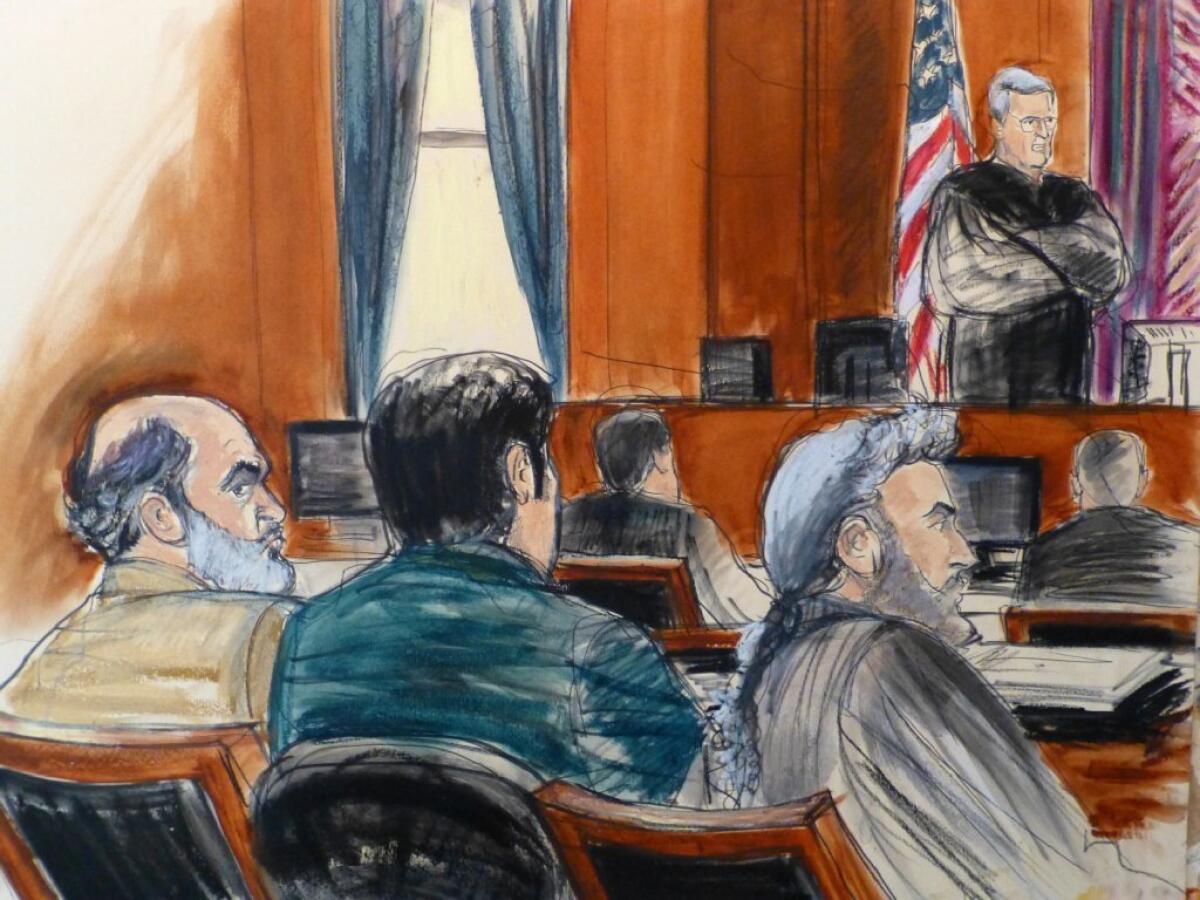Potential jurors in Bin Laden son-in-law case tell of Sept. 11 effects

- Share via
NEW YORK - A man whose friend died in the Sept. 11, 2001, terrorist attacks was among potential jurors excused Monday from serving on the trial of Osama bin Laden’s son-in-law, Sulaiman abu Ghaith, an alleged Al Qaeda propagandist accused of conspiring to kill Americans.
The opening day of jury selection shed light on the effects the 2001 attacks had on some New Yorkers, even those who did not know people wounded or killed.
Some potential jurors said they were not sure they could be impartial, given their memories of Sept. 11. Others echoed some of the congressional opposition to trying foreign nationals accused of terrorism in U.S. civilian courts, where they are guaranteed the same rights as Americans.
“Why are we wasting our taxpayers’ money and our time on somebody who’s not an American?” one woman said in an exasperated voice as U.S. District Judge Lewis A. Kaplan asked her to elaborate on some written replies to questions submitted by attorneys.
The woman also said she could not comprehend how anyone in their right mind could commit a terrorist act. “They’re sick,” she said.
She was not among the potential jurors let go, but she could be excused later as both sides try to whittle the pool down to 12 jurors and four alternates.
Abu Ghaith, who is married to Bin Laden’s daughter Fatima, is not charged with having a direct hand in the hijackings, but he is accused of encouraging more attacks and of conspiring with Al Qaeda operatives to kill Americans. He pleaded not guilty, and could face life in prison if convicted.
The day began with 44 potential jurors called into the courthouse in lower Manhattan, about half a mile from where the World Trade Centers once stood.
This is the first Sept. 11-related case to be tried in a U.S. civilian court. The alleged mastermind of the attacks, Khalid Shaikh Mohammed, is held at the U.S. military prison in Guantanamo Bay, Cuba. Opponents of the Obama adminstration’s plan to close that prison have quashed attempts to move Mohammed and other alleged attack planners into the civilian prison system.
But Abu Ghaith was not caught in the Guantanamo bottleneck, because after his arrest in Jordan in 2012, he was flown directly to New York to face trial.
Abu Ghaith, flanked by his attorneys, was not in his usual prison garb and skull cap Monday. Instead, he wore a suit jacket, which appeared at least a size too large, baggy trousers and sneakers. His head was bare, and his formerly scraggly beard was neatly trimmed.
Some jurors expressed concerns about their ability to be unbiased. The man whose friend was killed on Sept. 11 replied “yes” when Kaplan asked if his friend’s death could affect his ability to be impartial. He was excused.
A woman whose brother was in the military on Sept. 11, and who has a friend who lost a relative that day, also was excused. “Thinking back to that time and what occurred, I don’t know if I could be impartial,” she told Kaplan.
But others who had close calls on Sept. 11 said they would not let the incident cloud their ability to sit on a jury. They included a woman whose son was on Flight 93 on Sept. 10, one day before that flight was hijacked and crashed into a field in Pennsylvania.
Several jurors cited their jobs as reasons they should be excused from the trial, which is expected to last three to five weeks. Some mentioned medical issues, including back pain and irritable bowel syndrome.
Jury selection resumes Tuesday.
More to Read
Sign up for Essential California
The most important California stories and recommendations in your inbox every morning.
You may occasionally receive promotional content from the Los Angeles Times.











